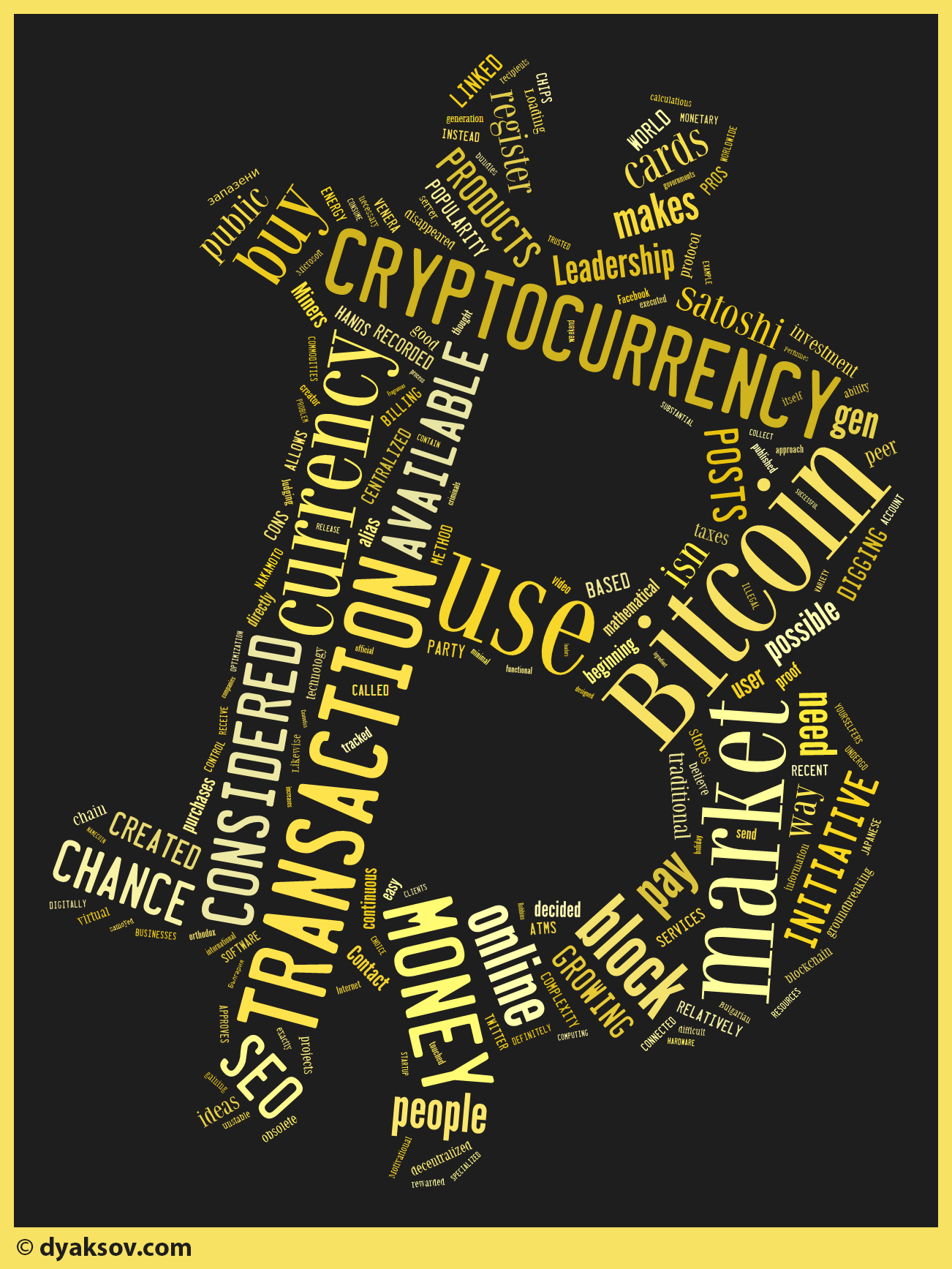Today, less and less transactions are done in cash. Instead, we can buy a product via credit card or through online banking. But has it ever come to your mind that you can pay for something by using a cryptocurrency? Well, someone thought it’s possible, and that marked the beginning of Bitcoin.
What is Bitcoin?
Bitcoin is a new transaction system that uses the cryptocurrency of the same name (BTC). The Bitcoin protocol was first published in 2008, while the first Bitcoin software was available in 2009. Satoshi Nakamoto is the creator of Bitcoin. Judging by his name, Satoshi is Japanese. However, there’s a strong chance that’s just an alias, since the person behind it really isn’t publicly known. Some even consider it possible that there is a whole group of people behind that alias. In 2011, Satoshi decided to focus on other projects, and disappeared from the online space. Nevertheless, Bitcoin is now the world’s most used cryptocurrency and its popularity continues to grow. Moreover, the birth of Bitcoin is considered equal to other groundbreaking innovations such as the PC and the Internet.
How does Bitcoin work?
Bitcoin provides different point of view and an innovative approach towards the orthodox monetary system. The money, which we’re used to, have a material aspect, i.e. they can be touched and moved. Also, we believe bank money, used in online purchases, have value, since they are connected to a bank account. However, Bitcoin is based on the idea of money that isn’t materialized in the real world. Bitcoins are created by using a mathematical algorithm. Transactions are registered in a publically available blockchain. This type of register serves as a proof that each transaction has in fact been executed.
When we use money in the traditional way, we need a bank or an authority that approves transactions. But when we use Bitcoins, each transaction is recorded in the public register, which is enough of a proof, and that makes the role of a third party obsolete. This way, the control of virtual money is in the hands of the community.
Traditional currencies are centralized and issued by a public authority. Bitcoin, on the other hand, is decentralized and based on the P2P (peer to peer) technology. P2P is computer network with users, who give different resources to others within the same network without the need to use a central server. Each user can access that network and exchange information with others directly. Likewise, Bitcoins are created digitally by a community, which everyone can be a part of.
If you now ask yourselfers whether or not to use bitcoins, here are some pros and cons for you to consider.
Pros:
- Bitcoin is an easy way to exchange, send and receive money, without any additional billing, since you don’t need a third party to make a transaction.
- Bitcoin’s system never sleeps, and is available even during the weekend or the holiday.
- Fast international transactions – you can pay a relative abroad as easy as you can give money to the guy next door.
- You can keep your anonymity while making a payment.
Cons:
- Bitcoin’s ability not to be tracked makes the cryptocurrency come in handy for criminals. People can buy drugs and other illegal products and services with a minimal chance of being tracked by the authorities.
- Bitcoin is still a relatively new cryptocurrency. There’s a chance for another cryptocurrency to prove itself more worthy and thus to become more popular and functional than Bitcoin.
- There aren’t a lot of businesses which would allow you to pay in bitcoins. This will definitely change in the future, but right now buying bitcoins is more of a long-term investment.
- Bitcoin still doesn’t get much love from governments and banks worldwide, thus giving it a dismal chance of becoming an official currency. However, bitcoins are considered commodities, which undergo tax billing.
- Bitcoin’s exchange rates are a bit unstable. The bitcoin market isn’t big, so a small dislocations in supply and demand could lead to huge jumps in prices.
How to get bitcoins?
- You can buy bitcoins either directly from another bitcoin user, or in the Bitcoin stock market. You can also use Bitcoin ATMs. There’s the first Bulgarian Bitcoin market (crypto.bg) and the first Bitcoin ATM is Sofia already available.
- You can get bitcoins through a payment method. This is a good choice, considering you have a startup due to low taxes and gaining clients from the ever-growing Bitcoin market community.
- Bitcoin mining.
What is Bitcoin mining?
Miners collect the transactions on the network into large bundles called blocks. These blocks are strung together into one continuous record called “block chain”. This process is necessary because without it people are going to be able to send the same bitcoins over to different recipients. The Block chain lets you know for sure exactly which transactions count and can be trusted. Miners, who successfully create a block, are rewarded some bitcoins. For mining you need specialized hardware to solve the mathematical algorithm, which becomes more difficult with every transaction. In the beginning ‘digging’ was possible with PC, but over the time the calculations has become more complex and require more computing power. The next generation of miners used video cards, but the problem is the big amount of energy they use and the high heat release. ASIC chips are the newest tool for digging Bitcoins. They are specifically designed and contain algorithms that are required, which allows them to consume less energy. In the recent years less and less people decide to dig, because with each found block complexity increases and the purchase of chips requires substantial investment.
Where can you use bitcoins?
A growing number of companies (like Microsoft, Dell) start to take in bitcoins for their products and services. A variety of online stores also give you the option to pay in bitcoins. Some of them even sell gift cards for you to use in other stores (for example you can use bitcoins in bulgarian websites, such as Grabo.bg and Fragrances.bg, as a payment method).






